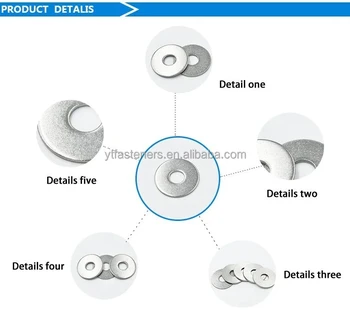Oct . 11, 2024 00:39 Back to list
anchor fastener
Understanding Anchor Fasteners Key Components in Construction and Engineering
Anchor fasteners play a vital role in construction and engineering, serving as essential components for securing structures and providing stability in various applications. Whether it’s in residential buildings, commercial infrastructures, or industrial setups, anchor fasteners ensure that elements remain firmly attached, even under pressure or adverse conditions. In this article, we will explore the various types, applications, and benefits of anchor fasteners, delving into their significance in modern construction.
What Are Anchor Fasteners?
Anchor fasteners are devices used to attach objects to various base materials such as concrete, masonry, or drywall. They come in different forms, sizes, and designs, each tailored for specific applications and load-bearing requirements. The primary function of these fasteners is to provide a secure hold for items like beams, shelving, pipes, and fixtures, ensuring stability and safety in construction projects.
Types of Anchor Fasteners
1. Expansion Anchors Commonly used in concrete and masonry applications, expansion anchors work by expanding within the base material when a screw is tightened. This creates a strong grip that prevents the anchor from pulling out. These anchors are available as sleeve anchors, wedge anchors, and drop-in anchors, each suited for different load types and environments.
2. Sleeve Anchors A subtype of expansion anchors, sleeve anchors feature a cylindrical sleeve that expands as the bolt is tightened. They are versatile and ideal for use in solid materials, providing excellent holding power.
3. Concrete Screws Unlike expansion anchors, concrete screws are self-tapping and can be directly installed into the concrete, making them quick and efficient for various fastening needs. They are ideal for lighter loads and simpler installations.
4. Chemical Anchors These involve the use of adhesives to bond the anchor to the base material. Typically used in applications requiring high load capacities, chemical anchors can be employed in cracked concrete situations where traditional anchors may not perform reliably.
5. Wall Anchors Designed for use in drywall and panel systems, wall anchors, such as toggle bolts and molly screws, distribute the load across a larger area, preventing damage to the surface. They are perfect for hanging items on walls without compromising structural integrity.
6. Hook Anchors Used for suspending loads from ceilings or other overhead structures, hook anchors allow for easy installation and removal of hanging objects, making them suitable for various applications in both residential and commercial settings.
anchor fastener

Applications of Anchor Fasteners
Anchor fasteners are utilized across a myriad of industries and applications. In residential construction, they secure fixtures such as cabinets, shelves, and lighting. In commercial environments, they support heavier installations, including HVAC systems, signage, and safety equipment. Industrial applications often involve anchoring heavy machinery, ensuring stability and safety on factory floors. Beyond traditional construction settings, anchor fasteners are critical in marine, transportation, and aerospace industries, where reliability and strength are paramount.
Benefits of Using Anchor Fasteners
1. Security and Stability The primary advantage of anchor fasteners lies in their ability to provide robust support to structures and installations. This is crucial for maintaining safety standards and ensuring that components remain secure over time.
2. Versatility With various types of anchor fasteners available, they can be used in a wide range of materials and applications, making them suitable for almost any construction project.
3. Ease of Installation Many anchor fasteners are designed for quick and straightforward installation, reducing labor time and associated costs in construction and DIY projects.
4. Load Capacity Depending on the type, anchor fasteners can handle significant loads, making them ideal for both lightweight and heavy-duty applications.
5. Durability Made from robust materials, anchor fasteners resist corrosion and deterioration, ensuring a long lifespan and reducing the need for frequent replacements.
Conclusion
Anchor fasteners are indispensable components in today’s construction and engineering fields. Their various types and applications provide solutions to an array of fastening challenges, ensuring the safety and stability of structures. Understanding the different kinds of anchor fasteners and their specific uses can help engineers, builders, and DIY enthusiasts select the right fastening solution for their projects. As construction standards evolve and materials advance, anchor fasteners will continue to be a crucial element in the development of safe and durable structures around the world.


